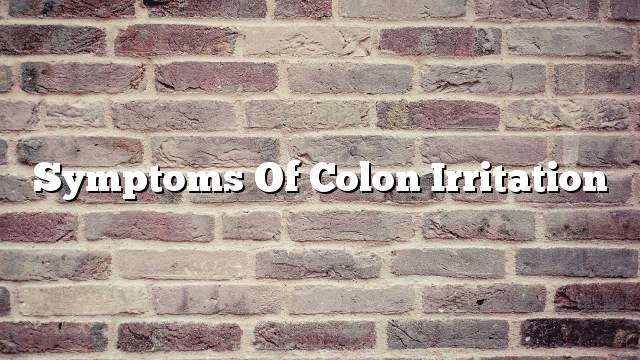Colon irritation
Is a defect in the functions of the colon, which result in problems in the digestive system such as bloating, indigestion, and problems of output, and these problems are very troublesome to the patient, but not life-threatening.
the reasons
- Disorders of the colon, either the colon movement is convulsive and rapid causing diarrhea, or be slow and static and cause constipation and bloating.
- The disturbance in secretion of serotonin is important in the process of understanding the brain and nervous system, thus affecting the function of the colon. The accumulation of large amounts of serotonin in the intestine leads to depression and anxiety, which worsens the function of the colon.
- Gastrointestinal infection with some bacteria may affect the colon.
- Celiac disease caused by the immune problems of wheat and its derivatives.
Irritable bowel factors
- Psychological problems such as anger, anxiety, and stress.
- Eat uncooked garlic, onions, fried foods, cabbage, mulch and eggplant, and a variety of spices and spices.
- Drink coffee and tea as well as soft drinks.
- Take some medical drugs.
- Peel the tomatoes.
- Cold air.
Symptoms
- Pain, constipation or diarrhea.
- Severe colic.
- Swelling and gas are a very troublesome problem.
- Do not sleep comfortably and worry.
- The emergence of sounds from the stomach.
- The presence of mucus in the stool.
the cure
Colon irritation is a chronic disease that needs to be co-existing, but some things that increase irritability, such as:
- Avoid foods that you feel and cause diarrhea or constipation.
- Avoid smoking.
- Exercise.
- Psychological comfort and relaxation.
- Drink large quantities of water and at least eight glasses of water per day.
- Eat multiple small meals instead of large meals.
- Take enough sleep.
- Fiber is very important for people with bowel irritation associated with constipation, but it will be a bad choice for people with diarrhea and gas.
- Treatment with medication: by taking some drugs that relieve the problems of irritable bowel syndrome, and should not resort to drugs only after consulting with a specialist.
The patient should not expect that he will improve quickly after following these tips, because the improvement will be gradual. The goal is to reach a long-term rather than a temporary solution, not to notice some common misconceptions such as a prescription for all situations and people, or that gastrointestinal endoscopy and some other tests help diagnose the disease or that there is a relationship between vomiting and colon irritation.
